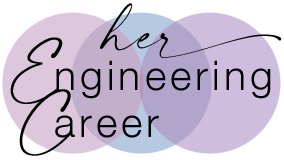Show Notes
I’m glad you’ve joined me for today’s discussion on broadening experiences. Because I know this topic is relevant to you. And it’s a great career enrichment approach for women engineers.
I’ll start by explaining what I mean by broadening experiences. We’ll talk about why you need them in your career. Then I’ll give you some examples to help you strategize your own options.
First, what do I mean by broadening experiences?
A broadening experience is a job, position, project or task that is outside of your assigned or current work and exposes you to new things. New people, groups, processes, activities, technologies and/or applications.
Broadening experiences are usually temporary. They can be full time, so that you would stop your current work for a while. But often they’re extra duties that you would perform along with your current job.
Broadening experiences allow you to gain knowledge and insights that strengthen your skills and abilities. They usually don’t involve a promotion or pay increase. But they enrich your job performance and enhance your resume.
Why You Need Broadening Experiences in Your Engineering Career
There are certain career situations when I would consider a broadening experience to be necessary. For example:
- When you’re stuck in your job or career and you’re not sure what to do next, a broadening experience can inspire you with more options.
- When your job is stagnating and it feels like your career isn’t moving forward, a broadening experience can spark that forward motion.
- When you know what job you want but you’re not qualified to compete for it, a broadening experience can bolster your skills or experience to put you in the running.
- Or when promotions aren’t available – either because all positions have been filled, or you’re on a downswing in business and promotions just aren’t happening – a broadening experience can keep you challenged and visible.
How Broadening Experiences Benefit Your Engineering Career
There are other benefits to broadening experiences too. For example, taking on a broadening assignment:
- allows you to explore other types of jobs and areas inside and outside the organization,
- builds your resume and makes you more marketable,
- enables you to learn more – to go broader or deeper into a technology area or application,
- shows you have incentive, motivation and enthusiasm,
- builds risk tolerance and confidence,
- shows that you have interest in the bigger picture,
- expands your network and provides key connections to other groups,
- keeps your career rewarding and fulfilling.
Maybe you’re at a point where you can benefit from a broadening experience or other career strategy. I’d love to work with you to find the ideal approach to your engineering career vision.
I invite you to check out my Signature Program and see how you can leap forward to more fulfillment and impact. Fill out the application. It’s easy and quick. Let’s set up a discovery call.
Examples of Broadening Experiences for Your Engineering Career
The list of potential broadening experiences is endless. And feasible ideas are highly dependent on where you work and the type of job you have.
When determining your broadening options, there are many considerations. Long term vs. short term. Inside vs. outside your organization. Technical vs. non-technical. Part of your job vs. on your own time. Choose what’s best for you, your career, and your organization. In that order.
I’m providing some ideas based on my own experience and where I used to work. They should be sufficient to at least spark some ideas for you.
- Broadening experiences can be pretty simple and straightforward, like serving on a selection committee or helping plan or host an award ceremony or peer review. You can volunteer for a rotation as the office security person or safety point of contact.
- Your organization may be looking for people to lead special projects. These can be anything from reorganizing the storage room to setting up a poster session.
- You can act as a temporary technical assistant for a manager or executive, or a liaison to an outside organization.
- Broadening experiences can also be much more involved, like taking a sabbatical, collaborating with a partner organization, working in a new department, or taking an assignment at another geographic location.
- If you work for a small company or otherwise have a hard time finding broadening assignments, consider options outside your organization. Technical and professional associations offer many opportunities and are great options for leadership experiences.
Some of my career broadening roles included recruiting representative, science fair judge, and awards committee reviewer. I led a government-industry technology road-mapping team and served a 2-year rotation as a chief scientist’s assistant.
I also volunteered for SME and SWE and did international standards work for ASTM International.
These experiences certainly helped the progression of my career. And provided many of the benefits I mentioned earlier, like expanding my learning and my network.
If you’re at a point in your career where you’d like to enrich your engineering experience, consider a broadening assignment. Start looking around and asking for opportunities.
You can align them with your interests and goals. Or use them to explore something completely different. You can use them to grow professionally and build your resume. Or you can use them to meet new people and learn new, innovative approaches to your job.
However you look at it, a broadening experience provides you with the benefit of new understanding. You’ll come away with a richer outlook and additional confidence.
Next time on Her Engineering Career Podcast I’ll share some tips on how you can be more visible. Be sure to tune in for Episode 41.

